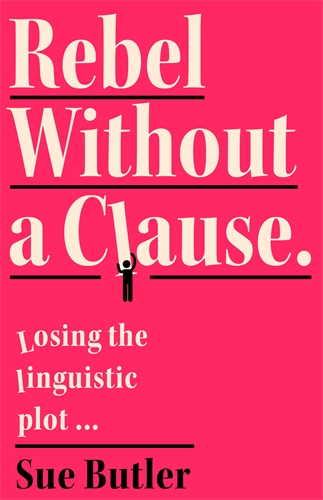Book review: Rebel without a clause, by Sue Butler
by Bridget Blair AE
Over the past couple of months I have enjoyed dipping in and out of the latest book by former editor of the Macquarie dictionary, Sue Butler. Rebel without a clause: Losing the linguistic plot is a grab-bag of thoughts and observations on modern language use and misuse from someone who encounters it every day.
The book is a collection of entries, each a page or two long, in no apparent order, which makes it perfect for picking up when you have an idle moment. The author discusses etymologies (real, imagined or eternally mysterious), common misuses of words, and cliches that will not die, with particular regard to Australian English and its idioms.
Some entries may be familiar to those who attended the last IPEd conference, when Ms Butler entertained us with some of her favourite language foibles in her keynote speech (such as Amanda Vanstone’s ‘we are literally bending over backwards to take into account the concerns of our colleagues’).
One of my favourites is the theory she puts forward for the origin of the word ‘bogan’ (which I had a lot of trouble explaining to my English partner when he first arrived in Australia). Sue suggests it comes from the characters who inhabited the Bogan country of NSW in the early 20th century — a theory that is entirely her own, based on a sound knowledge of how language changes over time and a well-developed ear for Australian lingo.
She makes no bones about the fact that she is happy to let some misuses pass as not worth the fight (irregardless), while others are pet hates and the subjects of small rants (infamous used for famous). Part of the pleasure of this book is that it is her personal take, full of anecdotes about the arguments she has been asked to adjudicate, somewhat random and often throwing up surprises (Australians have not always used British spellings as the norm).
She acknowledges that language is always changing, but that as an editor it can be hard to know when that change occurred and became acceptable. The importance of preserving good English, she argues, must be balanced against the right of authors to express themselves as they please (especially when they are capturing voices in dialogue). She cautions against pedantry: ‘all writers and editors, look before you leap’.
Educational and instructive in content but light and entertaining in format, this book is perfect for these times, when even the escapist dramas of novels can be anxiety-inducing and one’s powers of concentration are diminished by the stresses of life.
Bridget Blair AE
edvic.communication@iped-editors.org

